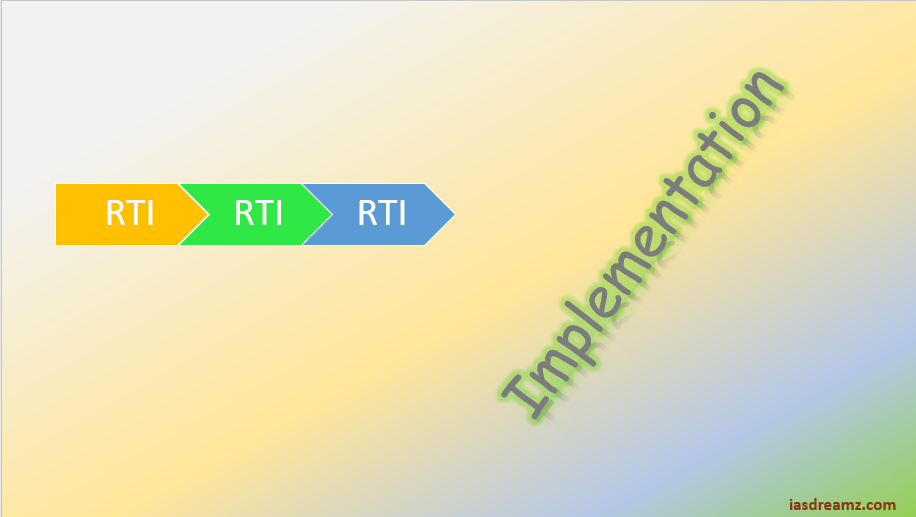The Implementation of RTI Act is divided into four articles for the sake of convenience of the students in understanding it step by step. This is the fourth and the last series. In this article we will take up the topic of Implementation of RTI Act monitoring mechanism.
The below are the Rights and Obligations under the RTI Act:
- Information Commissions
- Information Officers and Appellate Authorities.
II. INFORMATION AND RECORD-KEEPING:
- Suo motu declaration.
- Public Interest Disclosure.
- Modernizing record keeping.
III. CAPACITY BUILDING AND AWARENESS GENERATION.
IV. CREATION OF MONITORING MECHANISMS. (We are here)

RTI Act Monitoring Mechanism:
Monitoring mechanism apart from exercising a supervisory role, should be able to detect problems in the process of implementation and trigger corrective measures.
Normally monitoring is an in-house function where the implementing authority itself monitors the operations.
A question arises as to which agency should be at the apex of the monitoring process. An option could be to assign this task to the nodal department in case of States and the nodal Ministry in case of GOI.
When an independent, full time authority exists under the Act it would be most appropriate to entrust it with the important responsibility of monitoring the implementation of the Act.
The authority and public confidence these bodies command, the expertise and insights they acquire, and their propensity to expand citizens’ rights for better governance make them ideal institutions to discharge this responsibility.
Need for a coordination mechanism:
State Information Commissions are independent of the Central Information Commission.
It would be advisable in public interest if all the Information Commissions can share perspectives and experiences.
This would avoid duplication of efforts, minimize litigation and ensure uniform application of the Act throughout the country.
Recommendations:
(i) The CIC and the SICs may be entrusted with the task of monitoring effective implementation of the Right to Information Act in all public authorities. (An appropriate provision could be made under Section 30 by way of removal of difficulties).
(ii) As a large number of Public Authorities exist at regional, state, district and sub district level, a nodal officer should be identified wherever necessary by the appropriate monitoring authority (CIC/SIC) to monitor implementation of the Act.
(iii) Each public authority should be responsible for compliance of provisions of the Act in its own office as well as that of the subordinate public authorities.
A National Coordination Committee (NCC) may be set up under the chairpersonship of the Chief Information Commissioner with the nodal Union Ministry, the SICs and representatives of States as members. A provision to this effect may be made under Section 30 of the Act by way of removing difficulties. The National Coordination Committee would:
a. serve as a national platform for effective implementation of the Act,
b. document and disseminate best practices in India and elsewhere,
c. monitor the creation and functioning of the national portal for Right to Information,
d. review the Rules and Executive orders issued by the appropriate governments under the Act,
e. carry out impact evaluation of the implementation of the Act; and
f. perform such other relevant functions as may be deemed necessary.
References:
